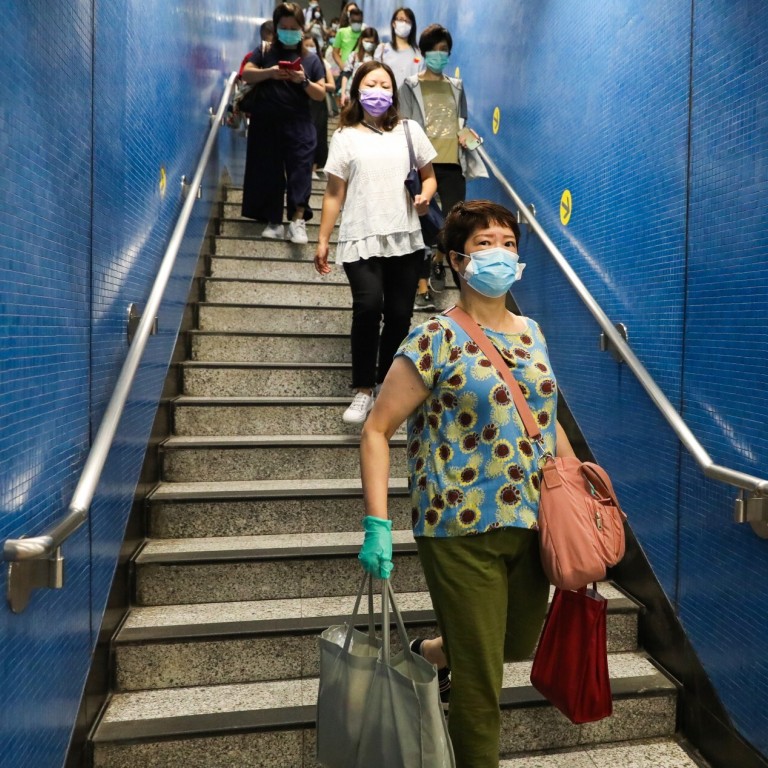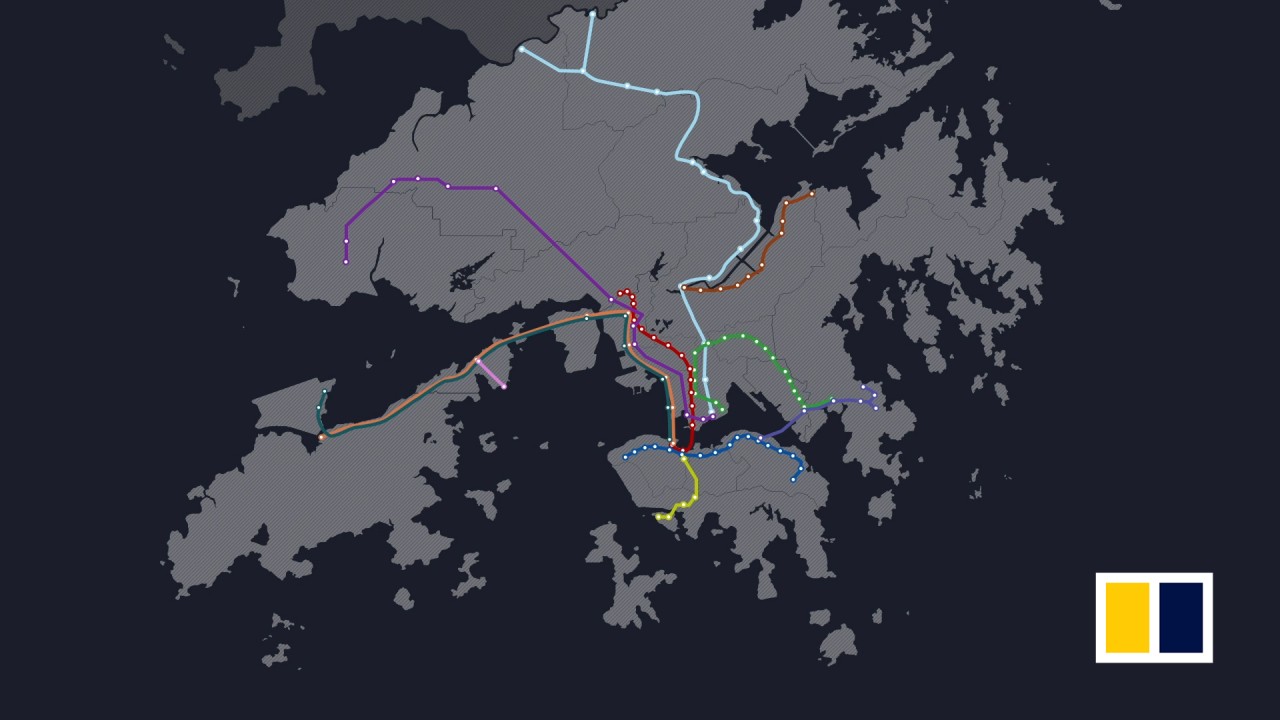
Hong Kong’s MTR Corp takes HK$334 million hit as rail giant posts worst performance since it went public in 2000
- Coronavirus has taken heavy toll on corporation’s services and valuation of investment properties
- Passenger numbers down 37.7 per cent to 637.2 million for first half of the year from the same period in 2019
Hong Kong’s rail operator saw net losses plunge to HK$334 million (US$42.8 million) in the first six months of 2020 from a profit in the same period last year – its worst performance since going public two decades ago.
CEO Jacob Kam Chak-pui said the overall financial impact of the Covid-19 pandemic was HK$5 billion on the company’s recurrent business, and the outlook was hazy.
“The challenge of the Covid-19 pandemic has been unprecedented to the company and Hong Kong. A lot of companies and industries have suffered significantly,” he said.
“It is hard to forecast the outlook for the rest of this year, which depends on the development of the pandemic.”
He hinted that there would not be any fresh sweeteners on train fares after the corporation earmarked about 50 per cent more this year, at over HK$3 billion.

01:50
Hong Kong’s MTR by the numbers
Part-privatised in 2000, the government now owns about 75 per cent of the corporation.
The virus has so far infected more than 3,700 people and killed 44 in Hong Kong, and has taken a heavy toll on the rail giant’s services, and the valuation of its investment properties.
There are no signs of improvement either, and a resurgence of Covid-19 across the city since July has prompted tightened social-distancing rules in restaurants and public areas, seen schools take earlier summer breaks, and forced people, including 170,000 civil servants, to work from home.
In a bid to contain the virus, all cross-border railway services have been suspended since January 30, and in Hong Kong, all but three border checkpoints have been closed indefinitely.
In the first half of the year, passenger numbers slumped 37.7 per cent to 637.2 million from the same period last year.
The MTR’s rail services suffered a loss of HK$2.57 billion compared to a HK$952 million profit previously while earnings from the station commercial operations was halved to HK$1.33 billion from HK$2.67 billion.
The corporation’s turnover from recurrent business was 23 per cent lower at HK$21.59 billion.
Hong Kong rail unions push back as MTR announces pay freeze
The net loss arose from an 83.8 per cent contraction in profit from recurrent business to HK$433 million, and a HK$6 billion loss from revaluation of properties in the first half. This offset the HK$5.2 billion profit from property development during the period.
MTR stations were a target of vandalism for radical protesters after they accused the corporation of bowing to pressure from Beijing and colluding with police.
It was proposed that the interim dividend would remain the same at 25 HK cents per share. MTR shares closed 0.25 per cent, or 10 HK cents, lower at HK$39.40 on Thursday before the results announcement.
Kam said the opening of the harbour-crossing section of the city’s most expensive rail project, the HK$90.7 billion Sha Tin to Central link, scheduled for the first quarter of 2022, met with challenges because to the public health crisis.
Lawmaker Michael Tien Puk-sun, former chairman of the Kowloon-Canton Railway Corporation, said the MTR’s performance encountered difficulties in the short term, and its longer-term prospects were supported by new projects in the city and across the border.
“In Hong Kong, it is responsible for a number of projects in the pipeline and in Shenzhen, it has a new property cum rail project as well,” he said.

